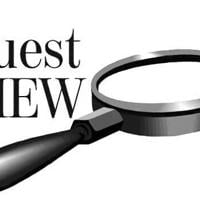“We hold these truths to be self-evident: that all men are created equal.” These are lofty words, aspirational indeed. They form what historian Gordon S. Wood has called “the single most powerful and radical ideological force in all of American history.”
On Thursday, Americans celebrated Independence Day, likely with cookouts, parades, and fireworks. We may have even thought of these words, however briefly. But how many of us took the time to read the Declaration of Independence? To truly contemplate the “why” of July 4th as part of our festivities?
Two years from now, we will mark the 250th anniversary of the Declaration — and, therefore, of the founding of our nation. To commemorate this occasion and its significance, the Montana Legislature passed a bill last year to establish a Montana 250th Commission. Members of the Commission include educators and historians, veterans and civics specialists, historic preservationists and Indian Education for All advocates, Republicans and Democrats.
People are also reading…
The objectives of the Commission are to promote civic engagement and increase public awareness of United States and Montana government and history, including the history of Tribal nations. This anniversary provides all Montanans the opportunity to reflect on the importance of 1776, celebrate the contributions Montanans have made to our shared history, and promote a renewed participation in civics education among Montana students. The Commission is designed to help organize, promote, and coordinate efforts across the state related to this commemoration that can be inclusive of all Montanans.
In considering the work we would focus on, we established an overarching theme that captures our vision for this effort: Everything is Connected. The concept belies the notion that, not only are we, as people, connected through our shared history, but particularly in a place like Montana, we are also connected by the landscape — our rivers and lakes, our mountains and meadows, our prairies and pastures, our flora and fauna, our natural resources and native forests. It is founded in the Tribal understanding that we are all related to everyone and everything.
In the coming months, we plan to engage stakeholders from across Montana — educational institutions, historical preservation entities, civic engagement organizations, tourism, arts, and heritage entities, veteran and military organizations, and local, state, national, and tribal partners — to not only discuss our designs for programming, but learn about efforts already underway in communities across the state.
Anyone interested in being a part of this coalition can visit our website, www.america250mt.org.
The more people can come together to explore U.S., Montana, and tribal history, the better citizens we can be. Additionally, the more we are able to make Montanans feel included in this process — to help them see themselves in the overall arc of our nation’s shared history — the more successful and unifying our project will be.
The year 1776 was, of course, only the beginning. Eleven years after the drafting of the Declaration of Independence, the Founders met again to draft the Constitution. It begins: “We the people of the United States, in Order to form a more perfect union.” Building this more perfect union remains our task.
On the 150th anniversary of the Declaration, President Calvin Coolidge implored American citizens to “go back and review the course which they [our Founding Fathers] followed.” He added that, “We must think the thoughts which they thought,” before we can fully grasp the meaning of the Revolution and the course that our nation’s founders put us on.
As we approach 250 years as a nation, let’s collectively and individually find ways to develop a fuller understanding of the tremendous achievements of our Founding Fathers, and the obstacles they overcame to form the freest nation on earth. Let’s promote efforts that help boost civic engagement and a spirit of community. And let’s work together to use our shared history to bring people together in celebration of America, the Beautiful, land that we love.
Chris Averill is chair of the Montana 250th Commission. A history major with a lifelong passion for making history and preservation accessible to and exciting for all, Averill also chairs the Montana State Historic Preservation Review Board and the Helena-Lewis and Clark Heritage Tourism Council.





